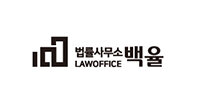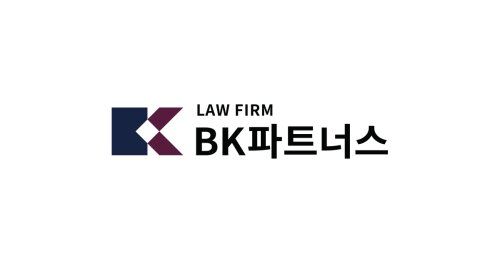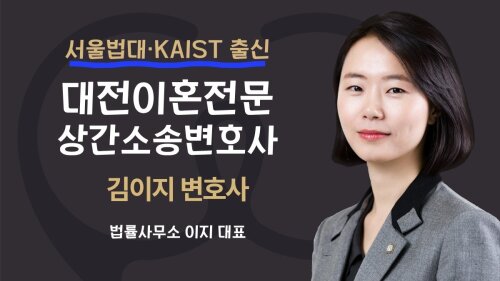Best Collaborative Law Lawyers in Seo-gu
Share your needs with us, get contacted by law firms.
Free. Takes 2 min.
Free Guide to Hiring a Family Lawyer
List of the best lawyers in Seo-gu, South Korea
About Collaborative Law in Seo-gu, South Korea
Collaborative Law is a modern approach to resolving disputes, especially in matters such as family law and business disagreements, that emphasizes cooperation and mutual respect among parties involved. In Seo-gu, South Korea, collaborative law allows individuals to address legal conflicts outside of traditional court litigation. Under this process, both parties, guided by their respective lawyers, work towards a fair settlement through open communication and negotiation. The main goal is to reach a consensus that respects the interests of everyone involved, minimizing emotional and financial stress.
Why You May Need a Lawyer
Individuals in Seo-gu may seek a lawyer experienced in collaborative law for several reasons. Here are common situations:
- Divorce and Family Disputes: Collaborative law is often used by couples who want a respectful, private, and amicable divorce or wish to resolve child custody and support arrangements without court battles.
- Business Disputes: Business partners or companies may choose collaborative law to resolve contract disputes or partnership disagreements while preserving ongoing relationships.
- Inheritance and Estate Issues: Families aiming to divide inheritances fairly often use collaborative law to avoid drawn-out legal battles.
- Employment Conflicts: Employers and employees may use this approach to settle workplace issues without going to court.
- Desire for Privacy and Flexibility: Individuals who value confidentiality and a tailored agreement often prefer collaborative procedures.
Local Laws Overview
In Seo-gu, as in the rest of South Korea, collaborative law procedures are recognized as an alternative dispute resolution method but are not governed by a single specialized statute. Instead, collaborative agreements are supported by general civil law principles, including the Civil Act and the Family Litigation Act. While these laws do not specifically outline collaborative law, they provide a legal framework for parties to negotiate and formalize agreements legally. Collaborative law agreements reached by the parties can often be submitted to the court for approval, making them enforceable like a court judgment. Parties must voluntarily participate in good faith, and lawyers involved are committed to resolving the dispute without litigation. If negotiation breaks down, the collaborative lawyers may be required to withdraw, and new legal counsel would need to handle potential litigation.
Frequently Asked Questions
What is collaborative law?
Collaborative law is a voluntary dispute resolution process where parties and their lawyers agree to work together to resolve their issues privately and cooperatively, without going to court.
How does collaborative law differ from mediation or litigation?
Unlike litigation, collaborative law is non-adversarial and aims for mutually acceptable solutions. Unlike mediation, each party has their own lawyer committed to reaching an out-of-court agreement and cannot represent the client if the case proceeds to court.
Is collaborative law legally recognized in Seo-gu?
Yes, collaborative law procedures are recognized in Seo-gu and throughout South Korea as part of alternative dispute resolution methods, though not governed by a distinct statute.
What types of case are suitable for collaborative law?
Cases suitable for collaborative law include divorce, child custody, inheritance disputes, business disagreements, and workplace issues where parties seek an amicable settlement.
What is the role of the lawyer in collaborative law?
Lawyers in collaborative law guide their clients, provide legal advice, help facilitate productive discussions, and draft any final agreement reached by both sides.
Can agreements reached through collaborative law become legally binding?
Yes, agreements can be formalized in writing and submitted to the court for approval, making them enforceable like a court judgment.
What happens if the collaborative process fails?
If an agreement cannot be reached, both parties must hire new lawyers for any court proceedings, as the original collaborative lawyers cannot represent their clients in subsequent litigation.
Is collaborative law confidential?
Yes, the meetings and discussions in collaborative law are generally confidential to encourage honest and open communication between parties.
How long does the collaborative law process take?
The timeline can vary but is often quicker than traditional litigation, since parties control the schedule and pace of negotiations.
How do I start the collaborative law process in Seo-gu?
The first step is meeting with a lawyer who is trained in collaborative law. The lawyer will guide you through the process and communicate with the other party to begin negotiations.
Additional Resources
If you are considering collaborative law in Seo-gu, consider the following resources for more guidance and assistance:
- Seo-gu District Office Legal Affairs Department
- Korean Bar Association - provides information on lawyers and alternative dispute resolution
- Korea Legal Aid Corporation - offers assistance, particularly for those with financial need
- Local family courts - for approval of collaborative family agreements
- Non-government organizations facilitating amicable settlement and dispute resolution
Next Steps
If you believe collaborative law may help resolve your dispute, here are the steps to take:
- Consult with a lawyer in Seo-gu who is experienced in collaborative law.
- Discuss your goals and expectations for the process.
- Have your lawyer communicate with the other party and their lawyer to confirm their willingness to participate.
- Enter into a collaborative law agreement outlining both parties’ commitments to the process.
- Participate in negotiation sessions facilitated by your lawyers.
- Once an agreement is reached, ensure it is put in writing and, if appropriate, submitted to the court for approval.
- If at any point the process breaks down, seek advice from your lawyer about next legal steps and rights.
Taking these steps can help you resolve your legal issues in a cooperative, efficient, and respectful manner. Always consult with a qualified lawyer to ensure your rights and interests are protected throughout the process.
Lawzana helps you find the best lawyers and law firms in Seo-gu through a curated and pre-screened list of qualified legal professionals. Our platform offers rankings and detailed profiles of attorneys and law firms, allowing you to compare based on practice areas, including Collaborative Law, experience, and client feedback.
Each profile includes a description of the firm's areas of practice, client reviews, team members and partners, year of establishment, spoken languages, office locations, contact information, social media presence, and any published articles or resources. Most firms on our platform speak English and are experienced in both local and international legal matters.
Get a quote from top-rated law firms in Seo-gu, South Korea — quickly, securely, and without unnecessary hassle.
Disclaimer:
The information provided on this page is for general informational purposes only and does not constitute legal advice. While we strive to ensure the accuracy and relevance of the content, legal information may change over time, and interpretations of the law can vary. You should always consult with a qualified legal professional for advice specific to your situation.
We disclaim all liability for actions taken or not taken based on the content of this page. If you believe any information is incorrect or outdated, please contact us, and we will review and update it where appropriate.










